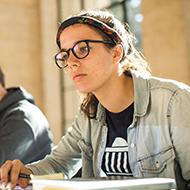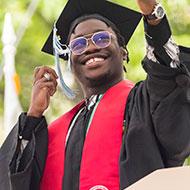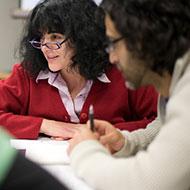What you need to know
The Alex and Brit d’Arbeloff Fund for Excellence in Education is soliciting wide-ranging proposals to support larger-scale ambitious projects designed to strengthen MIT undergraduate education and curricula, and enrich the academic experience of our undergraduates. Proposals can be focused on any level of undergraduate education and those transcending specific departmental curricula are also encouraged.
In recent years, various faculty groups have released reports that include specific recommendations to improve undergraduate education and ideas that could be applied to undergraduate curricula, for example:
- Report of Task Force 2021 and Beyond (October 2021),
- Report of the Ad hoc Committee on Leveraging Best Practices from Remote Teaching for On Campus Education (August 2022),
- MIT Strategic Action Plan for Belonging, Achievement & Composition (September 2022).
The committee is also interested in innovative proposals that respond to current educational trends at MIT and in higher education more broadly, i.e., generative AI, academic wellbeing, etc.
Funding requests may include faculty and TA summer salary and EB, UROPs, materials and books, and some equipment. We do not typically fund overhead, teaching release, conference expenses or travel, graduate student tuition, honoraria, guest travel or lodging, or RA positions.
Proposals for multi-year projects are accepted, but grants are made on a year-by-year basis. The review committee looks favorably on projects that share costs with departments or other entities.
What you need to do
- Download the full guidelines in PDF format. An overview is below.
- Send your complete detailed proposal, including a cover sheet, 3-6 page narrative, budget, and letters of support to darbeloff-fund@mit.edu by Friday, October 13, 2023.
- Our staff will confirm receipt of your proposal by email.
- The selection committee will meet in November. You will receive a decision letter by email in December.
- For questions about your proposal or the process, contact us at darbeloff-fund@mit.edu or (617) 253-5629.
Proposal guidelines
A complete application includes the following:
- Cover sheet — download in PDF format.
- Proposal narrative (3-6 pages) that includes:
- a detailed description of your project, activities, and timeline.
- a description of how you will reflect upon the efficacy of your innovation.
- educational objectives with answers to the following questions:
- How will the project enhance your teaching?
- How will it improve the students' experiences in the classroom?
- What is the potential impact of the project at MIT? Estimate the number of students served now and in the future.
- A description of staffing and resources needed for the project (including personnel, space, equipment, etc.).
- A description of interactions across departments or schools and/or among faculty and other members of the extended MIT community, such as alumni, close industrial partners, research scientists, and partners at other institutions.
- Previous d’Arbeloff Fund recipients should also include a summary of past projects, noting any unspent funds.
- A completed budget sheet that details how requested funding will be used and lists other sources of support, committed and requested.
- Required letters of support from the appropriate department head(s) addressing cost sharing and sustainability after d’Arbeloff funding ends.
Requirements and restrictions
The selection committee places a high value on sharing best practices and on reflection on the efficacy of educational innovations. The selection committee may request that PIs with proposals that are particularly well-suited for rigorous, educational research studies work with Teaching and Learning Laboratory (TLL) to develop and implement a robust educational research study.
Award recipients are expected to submit a final report at the end of their funding period. This report will be available to the MIT community.
Participation in projects supported by the d’Arbeloff Fund, whether for compensation or as a volunteer, qualifies as “significant use” of administered resources under MIT Policies and Procedures. As such, ownership of intellectual property, including copyrights in instructional materials and curriculum, will vest with MIT.





